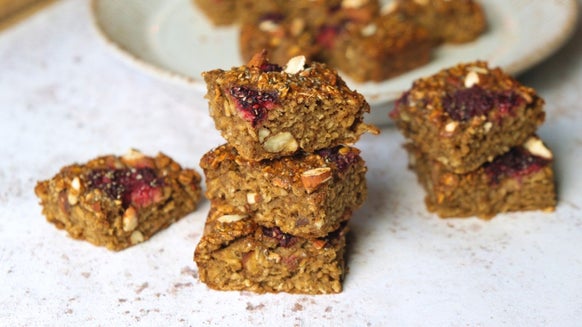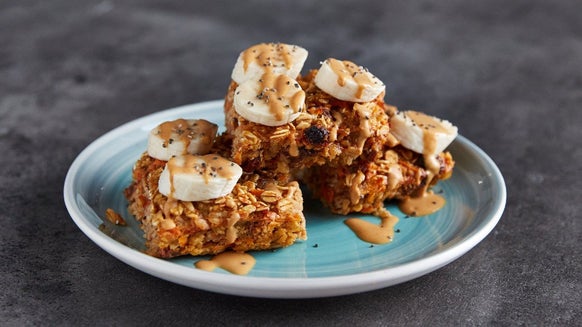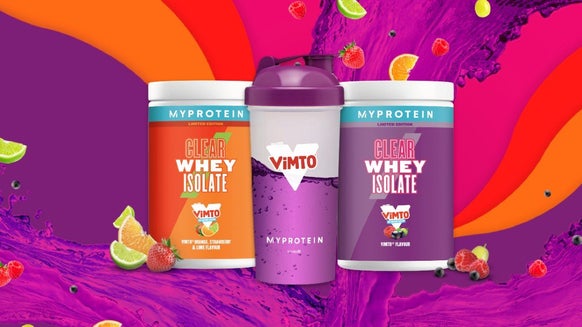10k Training Plan | Run with Myprotein

It’s no surprise that a 10K is one of the country’s most popular races or distances to run. Whether you're looking to take on your first 10K, or you’re simply looking for a training plan to up your pace, we’ve got everything you need in our definitive guide to running a 10K.
Each of our 5k training programmes features 8 weeks of structured training, designed by British long-distance runner Jonny Mellor, to get you to 5k fitness as smoothly as possible, with optimal amounts of rest to facilitate recovery. If you’re not sure which of our plans best suits you, then try out one of the beginner-friendly plans and progress from there.
Beginners 10k Programme
The beginner’s 10k programme is based on the beginners 5K training plan. 10k is a great distance, as it offers a step up from the shorter 5k distance, as well as the perfect introductory endurance challenge for novice runners not yet comfortable competing in a half-or full marathon. Like 5k’s, 10k’s can also be a useful part of a training programme for more advanced runners, ideal for those looking to develop speed before running a longer distance event. Please see advanced programmes if you’re looking for more of a challenge.
The plan includes easy state running as well as a weekly, long run. This is a slow run with the challenge of running at a steady pace for the duration of the run, giving your body time to adapt to the stimulus of a long run. Interval and hill training sessions are also included towards the end of the programme. Interval training involves alternating periods of high-intensity effort with periods of low-intensity effort, often called recovery. Interval training has many health benefits, as well as improving your ability to run faster for longer. These efforts should be run at a pace quicker than an easy run pace, but not an all-out sprint. Hills are perfect for developing leg strength, while also improving V02 max and running form.
| Week | Tuesday | Wednesday | Thursday | Saturday | Sunday |
| 12 | 2miles easy run Res | Rest | 3miles easy run | 30mins brisk walk | 5mile long run |
| 2 | 3miles easy run + 4x15sec strides | Rest | 3miles easy run | 30mins brisk walk | 5mile long run |
| 3 | 3miles easy run + 4x15 strides | Rest | 3miles easy run | 40mins brisk walk | 6mile long run |
| 4 | 5mins w/u – 6x2mins, 2min brisk walk recovery 5min c/d | 2miles easy recovery run | 3miles steady run + 4x15sec strides | 40mins brisk walk | 6mile long run |
| 5 |
1mile w/u – 6x90sec hills, jog back recovery, 1mile c/d |
2miles easy recovery run | 4miles steady run + 4x15sec strides | 2miles easy run | 8mile long run |
| 6 |
1mile w/u – 8x2min, 2min brisk walk recovery 1mile c/d |
3miles easy recovery run |
5miles steady run + 4x15sec strides |
3miles easy run | 8mile long run |
| 7 |
1mile w/u – 6x2min hills, jog back recovery, 1min c/d |
3miles easy run recovery | 5miles steady run + 4x15 strides | 3miles easy run | 5mile long run |
| 8 | 5mins w/u – 8x1mins, 2min brisk walk recovery, 5mins c/d | Rest | 2minles easy run | 10K RACE | 2miles easy run recovery |
Intermediate 10k Programme
This plan first introduces periodisation into your schedule. This ensures you reach your peak at the right time while building suitable aerobic foundations on which to base your training. Hills are scheduled in week 2 and are performed to improve power and develop your V02 max.
Hills should be run at an easy pace for a warm-up, followed by a few gentle dynamic stretches and then running hard up the hill, with an easy jog back down recovery before starting again. For optimal adaptations, run hills as a continuous effort. Hill training then leads into interval training later in the plan.
Interval training involves alternating periods of high-intensity effort with periods of low-intensity effort, often called recovery. Interval training has many health benefits as well as improving your ability to run faster for longer. These efforts should be faster than an easy run pace, but not an all-out sprint. The intermediate plan also includes progression runs. Progression runs are a key part of the Kenyan training schedule. Start off slow, almost easy run pace and gradually build the pace in blocks of 10mins or miles. Each section gets progressively quicker until you are running close to your 10k pace. Progression runs are the perfect progression towards tempo running later in the programme. Tempo running is key for training improvements and should be done at a pace that is ‘comfortably hard’ - faster than an easy run pace but not as fast as your interval work.
| Week | Tuesday | Wednesday | Thursday | Saturday | Sunday |
| 1 | 3miles easy run | 2miles easy run | 3miles easy run | 4miles progression run | 6mile long run |
| 2 | 1mile w/u – 5x2min hills, jog back recovery, 1mile c/d | 3miles easy recovery run | 3miles easy run | 4miles progression run | 7mile long run |
| 3 | 1mile w/u – 4x3minhills, jog back recovery, 1mile c/d | 3miles easy recovery run | 5miles steady run +4x15sec strides | 5miles progression run | 8mile long run |
| 4 | 1mile w/u – 5x3min hills, jog back recovery, 1mile c/d | 4miles easy run | 5miles steady run + 4x15sec strides | 1mile w/u – 3mile tempo, 1mile c/d | 9mile long run |
| 5 | 1mile w/u – 6x2: 30min hills, jog back recovery, 1mile c/d | 4miles easy recovery run | 6miles steady run + 4x15sec strides |
1mile w/u – 5x1min, 2min jog recovery, 1mile c/d |
10mile long run |
| 6 | 1mile w/u – 5x3min, 90sec jog back recovery, 1mile c/d | 5miles easy recovery run | 6miles steady run + 4x15sec strides | 1mile w/u – 3mile tempo, 1mile c/d | 10mile long run |
| 7 | 1mile w/u – 6x3: 30min, 90sec, jog back recovery, 1mile c/d | 5miles easy recovery run | 6miles steady run + 4x15sec strides | 1mile w/u – 5x1min, 2min jog back recovery, 1mile c/d | 8mile long run |
| 8 | 1mile w/u – 10x1min, 1min jog back recovery, 1mile c/d | 3miles easy run | 2miles easy run | 10K RACE | 2miles easy recovery run |
Advanced 10k Programme
This programme incorporate long runs, short runs, hills and intervals to develop your aerobic capacity, specifically for advanced runners. 2 days are afforded for rest and recovery, however, if you find that you are not recovering sufficiently from the training, then feel free to adjust your training accordingly.
| Week | Tuesday | Wednesday | Thursday | Saturday | Sunday |
| 1 | 5miles easy run | 5miles easy run |
6miles steady run + 4x15sec strides |
6miles progression run | 10mile long run |
| 2 |
1milew/u – 8x2min hill, jog back recovery, 1mile c/d |
5miles easy recovery run | 6miles steady state run + 4x15sec strides | 7miles progression run | 10mile long run |
| 3 | 1milew/u – 6x3min hills, jog back recovery, 1mile c/d | 6miles recovery run |
6miles steady run + 4x15sec strides |
8mile progression run | 12mile long run |
| 4 | 1milew/u – 6x3min hills, jog back recovery, 1mile c/d | 6miles easy recovery run |
6miles steady run + 4x15sec strides |
1mile w/u – 3mile tempo, 1mile c/d | 12mile long run |
| 5 | 1milew/u – 8x3, 2min jog back recovery, 1mile c/d | 6miles easy recovery run |
6miles steady run + 4x15sec strides |
1mile w/u – 5x1min, 2min jog back recovery, 1mile c/d |
12mile long run |
| 6 | 1milew/u – 5x3min, 2min jog back recovery, 1mile c/d | 6miles easy recovery run |
6miles steady run + 4x15sec strides |
1mile w/u – 5x1min, 2min jog back recovery, 1mile c/d |
12mile long run |
| 7 |
1milew/u – 6min tempo, 5x3min, 1mile c/d |
6miles easy recovery run |
6miles steady run + 4x15sec strides |
1mile w/u – 5x1min, 2min jog back recovery, 1mile c/d | 10mile long run |
| 8 | 1milew/u – 10x1min, 1min jog back recovery, 1mile c/d | 5miles easy recovery run | 4miles easy run | 10K RACE | 2miles easy recovery run |
Myprotein Run Club
Looking for a challenge? Or maybe you're just looking for someone to lean on for support in your fitness journey? Our Strava group is the place for you.
The Myprotein Run Club is a place to share your running journey, no matter where you are at. This is your community.








